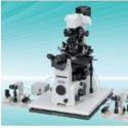Metabolomics and lipidomics study unveils the impact of polybrominated diphenyl ether-47 on breast cancer mice.
키워드
요약
Polybrominated diphenyl ether-47 (BDE-47) is a congener of polybrominated diphenyl ethers (PBDEs) and relates to different health risks. However, in vivo study of the association between BDE-47 and breast cancer was scarce. In this study, we performed in vivo exposure of BDE-47 to breast cancer nude mice and conducted mass spectrometry-based metabolomics and lipidomics analysis to investigate the metabolic changes in mice. Results showed that the tumor sizes were positively associated with the dosage of BDE-47. Metabolomics and lipidomics profiling analysis indicated that BDE-47 induced significant alterations of metabolic pathways in livers, including glutathione metabolism, ascorbate and aldarate metabolism, and lipids metabolism, etc. The upregulations of phosphatidylcholines (PCs) and phosphatidylethanolamines (PEs) suggested the membrane remodeling, and the downregulations of Lyso-PCs and Lyso-PEs might be associated with the tumor growth. Targeted metabolomics analysis revealed that BDE-47 inhibited fatty acid β-oxidation (FAO) and induced incomplete FAO. The inhibition of FAO and downregulation of PPARγ would contribute to inflammation, which could promote tumor growth. In addition, BDE-47 elevated the expression of the cytokines TNFRSF12A, TNF-α, IL-1β and IL-6, and lowered the cytokines SOCS3 and the nuclear receptor PPARα. The changes of cytokines and receptor may contribute to the tumor growth of mice.


